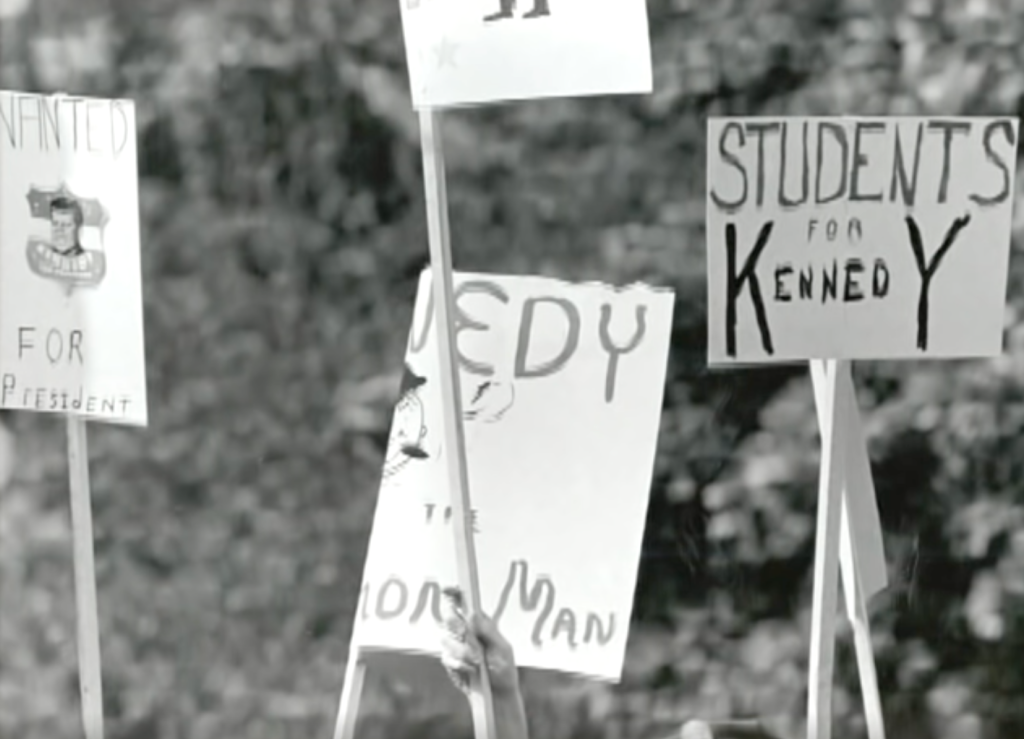We all know what a gaffe-man George W. Bush could be. He felt misunderstimated though he knew how hard it was for us to put food on our families.
John Kennedy, on the other hand, is remembered as a great orator. But let’s look back at this day in history, October 14 1960, when Kennedy first floated the idea of establishing some kind of international service cadre.

These are not the immortal words of January 20, 1961, the declaration from the Capital steps and before all the world: “Ask not what your country can do for you…” But you can still hear that same voice. You can still hear the character of that signature Bostonian declaration, a voice as much inspiration as self-caricature, a pace and cadence tuned to arouse. Up to ten thousand admirers have waited outside the Michigan Union until two a.m. to see the charismatic young candidate, and what he says, in a gaffe of presidential proportions, stirs raucous, bawdy cheers:
So I come here tonight to go to bed.
Slow at first, the hoots and catcalls signal how the students take this double entendre. The candidate can barely get out his next line, doubling down on the gaffe, as the raucous merriment expands.
But I also come here tonight to ask you… to ask you to join in the effort.
Mirth explodes anew. This is a university campus, after all, and kids will be kids. Kennedy’s kids.
Humor aside, it’s important to recognize that what he says that night, in the final weeks of an election campaign, stirs a revolution in American engagement with the world. When you’re done chuckling with those students of the sixties, vanguard of an America on the cusp of change, reflect on this: Kennedy’s impromptu lines fired the imagination and set a momentum that would forever impact how America engaged the world.
“How many of you who are going to be doctors, are willing to spend your days in Ghana?” he asked. “Technicians or engineers: how many of you are willing to work in the Foreign Service and spend your lives traveling around the world? On your willingness to do that, not merely to serve one year or two years in the service, but on your willingness to contribute part of your life to this country, I think will depend the answer whether a free society can compete. I think it can. And I think Americans are willing to contribute. But the effort must be far greater than we’ve ever made in the past.”
Read more about how those words, within a year, will set two future U.S. ambassadors on their trajectory in foreign affairs at the Association for Diplomatic Studies and Training.
##
Leave a comment